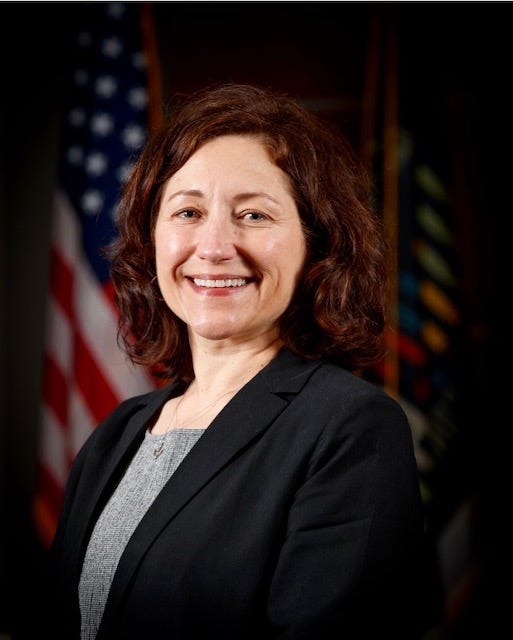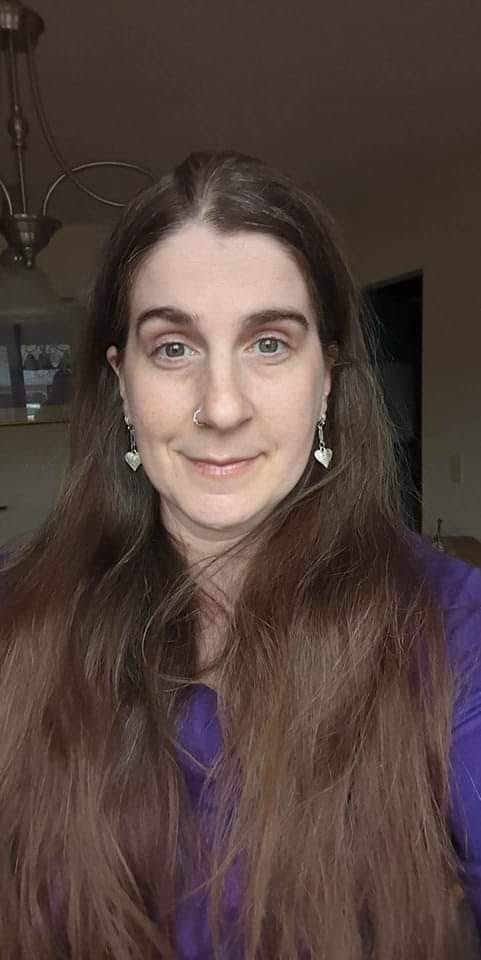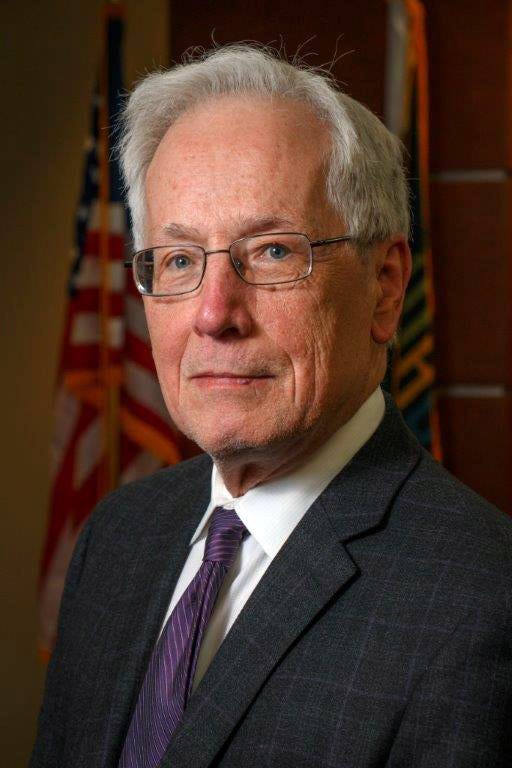The Wausau City Council candidates, part I
Here are the first three of six races for the Wausau City Council. Tune in tomorrow for part II
There was a time when few council races were contested each election cycle. Those days are gone now. This year, six of the eleven seats are contested, and there was even one almost primary. (One candidate chose not to run in District 4, despite being on the ballot.)
The post was getting quite long, so The Wausonian decided to break it up into two posts. Here are your candidates for District 1, 4 and 5.
Don’t know which district you’re in? Check out Wausau’s city council page, which includes a link to an aldermanic district map.
District 1
Carol Lukens (I), 59, is a reading specialist in the Wausau School District. Lukens says she’s seeking her second term in office because with one term under her belt she feels she can now be more effective. She loves helping people in District 1 and researching topics that come up at council or ones that residents bring up. Her top priority is truly affordable housing, and that intersects with a number of other issues such as transit or parking. “I think we have a need for truly affordable housing in Wausau.” She also believes that the city needs more market rate housing because that will help free up more affordable housing in Wausau. Her other priority is water and environmental issues. Lukens focused a lot on PFAS last year, including as it relates to artificial turf. She also mentions streets and infrastructure. She says Wausau’s biggest challenge is housing, along with development. She wants to see more development downtown and is happy that the first housing project is set to start in May and that more local shops are starting to open. She says TIF financing is complex, but she doesn’t believe the city will attract developers without it. Lukens says she agrees with a number of the same issues as her opponent, but touts her experience on the council and her career and life experience working in law offices, ginseng and non-profits besides education in why voters should choose her.
Catherine Kronenwetter, 48, is a business analyst and project management professional. She’s running because she’s been getting a lot of people asking her to, and her family has a history in politics (her late father wrote a column for City Pages for a long time and her brother Jay ran for mayor). Kronenwetter says the council has great people but is missing her experience in accomplishing goals and breaking through roadblocks, something she’s done repeatedly in her professional life. In fact, she sees the lack of progress and gridlock on Wausau’s goals as Wausau’s biggest challenge. As far as priorities, she says residents aren’t getting enough clarity on water issues, both in terms of health and in terms of water rates. But she says she is less focused on individual issues and more on accomplishing the goals the city has set for itself in the strategic plan, and making sure it’s providing the basic services it is committed to. Kronenwetter says she is skeptical about TIF and its use, but would take each case on its own merits. But she’s concerned about keeping revenue off the tax rolls in too many districts. “We don’t close them very often.” She also says there isn’t always enough information for residents on city projects and that they’re not always set up for success, pointing to the S.C. Swiderski project falling through. She wants to focus on getting more resident feedback and relaying that information to them before it’s too late to weigh in. Kronenwetter touts her capabilities in managing teams with strong personalities and her desire for feedback and openness as to why voters should elect her.
District 4
Tom Neal, 72, is retired but previously worked in marketing and brand management. Neal was first elected to the city council in 2014 and then declined to run in 2022, citing a possible move out of the area. He says he is running again in order to continue the work he had been involved in during his previous terms. Neal says his priority is the continued growth of Wausau. He says he would like to continue the work he had been doing on the Economic Development Committee. Neal says that adding housing in all price ranges should be a priority for the city. Neal says that in the course of door-knocking for his campaign, he hears a lot of questions about this issue. He also highlights how important it is for Wausau to be a fun, high-quality place to live. Neal says this will attract people to the area which will in turn attract new businesses. All of this will increase the tax base and grow the city. Neal points out that Wausau has to compete with other cities for new developments, businesses and residents. On the topic of TIF districts, Neal thinks they are a necessary tool to attract developers in a competitive environment, but that they can pose a risk to the city if the development is unsuccessful. He prefers reverse TIFs because they reduce the city’s financial risk. On the city’s water, Neal says that while the new water treatment systems were pricy, they were necessary. He thinks the city’s litigation against manufacturers may get complicated and drawn out, but he nonetheless thinks it is justified and hopes to see the manufacturers pay for the water filtration costs. Neal was formerly the chair of the city’s Welcoming and Inclusivity Committee. On this topic, Neal says he was happy to be a part of the committee and that it was attempting to address real concerns, but he thought it was odd that he was made chair. Neal considers the work of inclusion to be an ongoing process and sees such efforts as an important part of attracting new residents to the city.
Debra Weiss, 43, is a farmer who owns and operates Ethereal Gardens, an organic farm that sells produce and herbs in the Marathon County area. Weiss also started the Wausau Alternative Farmer’s Market. Weiss says she is running because she sees demand for policy change. Weiss says her focus on city council would be developing the local food economy so that the area is less dependent on global supply chains. She says the pandemic highlighted the problems with reliance on large supply chains. She says she would work to expand local farmer’s markets and farm to table programs. In a worst-case scenario, Weiss would like Wausau to be fed by local producers. She also thinks the city needs to do more to encourage entrepreneurship and help locals develop small businesses. On the subject of the city’s water, Weiss agrees that updating the filtration system was necessary. She supports the city’s recent lawsuit, and would like to see the polluting companies pay to solve the contamination, since it is not the taxpayer’s fault that the contamination occurred. She says she does not approve of raising water rates to pay for the filtration. She also says the filtration systems are a band-aid solution to the systemic problems of pollution and disregard for the local environment, and that the city will be spending money to clean up messes until that is fixed. She says she promises to fight for residents’ rights to healthy food and clean water.
District 5
Gary Gisselman (I), 81, is a retired librarian with the Marathon County Public Library and a historian/librarian with the Marathon County Historical Society. Gisselman served on the city council from 2006 to 2020, and he ran again in 2022 after a number of people asked him to. He also serves on the Marathon County Board representing that district. Gisselman sees economic development as Wausau’s biggest challenge. He says though the first mall redevelopment project is slated to begin in May, there is still a lot of empty space there and there needs to be a clear plan where the city should be in 5-10 years. Other priorities for the city he says are issues around water and billing and the city’s streets which need a lot of repair. Gisselman says he’s skeptical of TIF, and he wonders if the full costs and impacts are considered. Gisselman says he’s more sympathetic to businesses coming to town that bring jobs with them, and thinks that’s an important consideration when considering city involvement. Gisselman touts his lifetime of living in Wausau, his commitment to parks and infrastructure, and his strong commitment to the city itself in reasons why they should select him.
Orlando Alfonso, 65, is retired from a career in proprietary financial trading and running the St. Vincent De Paul store in Wausau. Alfonso said he wanted to run now that he’s retired and that he has an interest in politics going back to his time in Chicago and his involvement with a think tank. Alfonso sees the fiscal challenges the city faces as its biggest challenge. He says the county’s budget is pretty solid but by contrast the city’s debt to spending ratio is terrible. Alfonso says the most important thing for the city is to grow the tax base and not scare it out of town by reducing debt, reducing property taxes and reduce the water bill. He says lowering taxes would help grow and attract the private sector, which would increase revenue to the city. Alfonso says he values clean air and water but thinks the mayor is scaring the city into green programs, and questions the level of danger of PFAS Rosenberg and others are talking about (but does believe they do pose a danger). He also believes the city should be focusing on core services and shouldn’t be focusing on social issues. He cites the A Community for All resolution as an example, saying it created an environment in Wausau worse than the race relations in Chicago in the 70s. TIF is a legal and necessary evil, so to speak, but he thinks they’re only necessary because the city is so tax unattractive. Alfonso says he likes his opponent Gary but says he’s voted with the “woke crowd” too often. Alfonso says if voters like the approach Alfonso’s laid out, they should vote for him.
Clarifications: The Wausonian updated this post to more accurately reflect Alfonso’s background, a statement made about Chicago race relations, and his stance on PFAS. Also clarified the final sentence to make clear the sentence was talking about Alfonso’s stance, not Gisselman’s. Further update: Updated Gisselman’s brief to clarify he was talking about the mall redevelopment project.
Make sure to keep an eye out tomorrow for Districts 6, 8 and 9.
Want to keep up with the story? Subscribe to The Wausonian to get all the updates on local news. And, consider a paid subscription to help support local journalism, keep local leaders honest and to see everything The Wausonian reports on.
Already a paid subscriber? Use this referral link and earn credit toward your subscription when people sign up through your unique link, using the button below.










